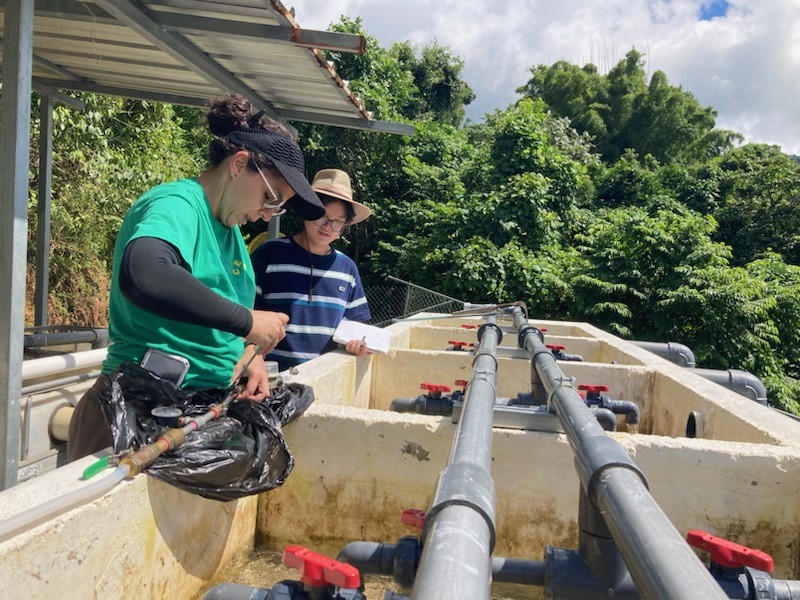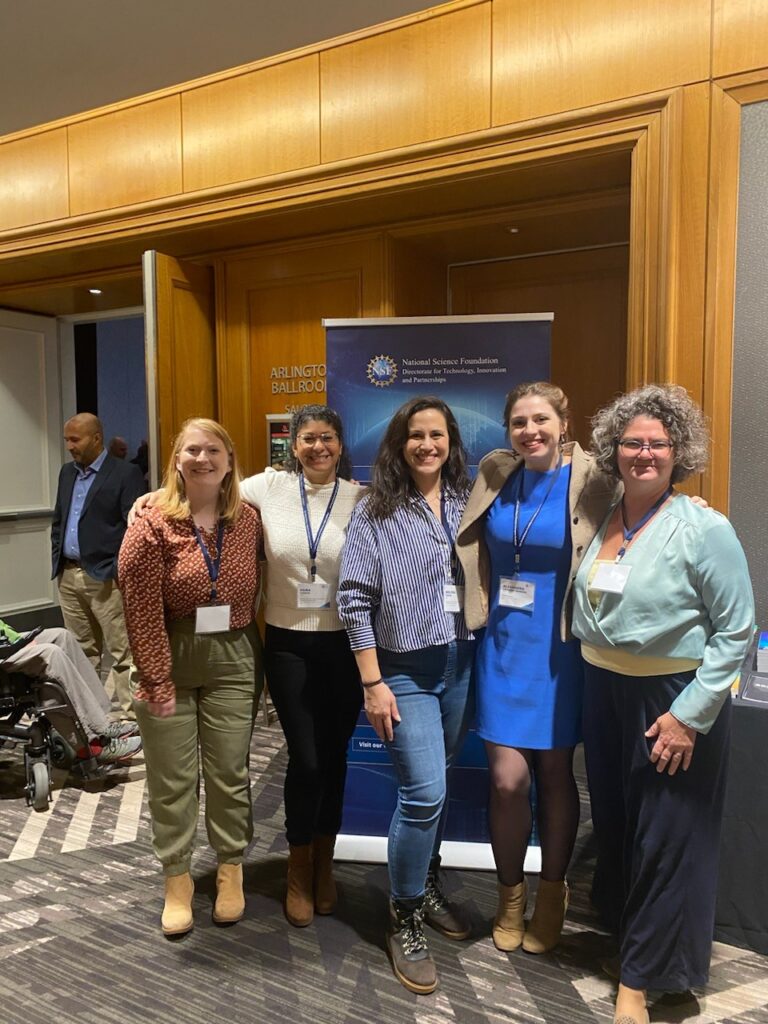
With funds sub-awarded through the U.S. National Science Foundation’s (NSF) Convergence Accelerator program, Syracuse University’s Center for Sustainable Community Solutions (CSCS) will help develop more accessible pathways for small communities to develop and maintain safe drinking water infrastructure. This collaborative project will focus on communities in Puerto Rico, with the ultimate goal being to use this case study as a framework that can be replicated in other U.S. locations and beyond. The project officially kicked off in February 2024.
Access to clean drinking water is a right for all that is threatened by the looming climate crisis. In 2022, 2.2 billion people lacked safely managed drinking water; and 2 billion people lacked a basic hand washing facility, according to the National Institutes of Health.
Many of those without access are communities of less than 10,000 people who face their own unique obstacles. In Puerto Rico, challenges for these small communities include limited economic resources and severe natural disaster risk, which is amplified by climate change. Unless viable and proactive solutions are developed, this lack of access will prevail.
This $650,000 research project, named VersaWater by its team, is funded by the NSF Convergence Accelerator Program and led by Cornell University in partnership with CSCS; Interamerican University of Puerto Rico’s Center for Environmental Education, Conservation and Research; and AguaClara Reach.
Through the Convergence Accelerator Program, the water research team will use a multidisciplinary, collaborative approach to accelerate the science and community engagement practices around Puerto Rico’s safe drinking water technology using three convergent focus areas: governance and financing, community education and workforce training, and resilient water system technologies.
“The Center for Sustainable Community Solutions (CSCS), which operates the Environmental Finance Center (EFC), has been a leader in environmental finance for over 30 years,” shared CSCS Director and the water project’s Co-Principal Investigator Melissa Young. “Ensuring that funding is not only available for investments like this but that it is also accessible is crucial to making everlasting change for the health and welfare of small communities.”
She continued, “We’re proud to be a part of the esteemed NSF Convergence Accelerator Program, which importantly prioritizes community-focused research and social impact.”
CSCS aims to identify how small communities can better access federal funding made available through the Bipartisan Infrastructure Law (BIL) — a law that authorized billions of dollars for federal investment, including significant financial support for water infrastructure in small communities — and the barriers they experience in doing so. CSCS leverages over three decades of community-based work in EPA Region 2 (which includes New York, New Jersey, Puerto Rico, the U.S. Virgin Islands, and eight Native Nations.)
Cornell Engineering is leading VersaWater (formerly called WaterSAVerS), bolstered by its ties to the non-profit AguaClara Reach, who have together been developing open-source sustainable water treatment technologies specifically for small and very small communities in the Global South over the past 20 years, according to Ruth Richardson, the water project’s Principal Investigator representing Cornell.
“The AguaClara technology aims to create gravity-powered water treatment plants specifically for small and very small communities. Innovations in automated dosing, water movement, and hydraulics create treatment plants that ease operation and maintenance demands since labor is a major cost for [these communities],” Richardson said.
What’s ahead
CSCS and team are currently in Phase 1 of the NSF Convergence Accelerator Program. Over the course of nine months, the water team will develop their initial idea into a proof of concept, identify new team members and partners, and participate in the NSF Convergence Accelerator’s Phase 1 innovation curriculum, which provides fundamentals in human-centered design; team science; use-inspired research; early-stage prototyping; and communications, storytelling, and pitching.
At the end of Phase 1, the water team will participate in a competitive formal NSF pitch and proposal process, which is used in selecting teams for Phase 2. Teams selected for Phase 2 will continue accelerating their solutions toward impact. By the end of the Convergence Research phases, solutions are expected to impact societal needs at scale and be sustainable beyond NSF support.
The Center for Sustainable Community Solutions (CSCS) at Syracuse University
CSCS is a nonprofit organization working at the intersection of sustainability communications, policy, and science to foster economic well-being, environmental stewardship, and social equity by engaging community members at all levels to provide the coordination and knowledge needed to make informed decisions that
support sustainability, resiliency, and climate adaptation. The Syracuse University Environmental Finance Center (EFC), operated by CSCS, is a pillar in this mission that facilitates the development of sustainable and resilient communities throughout US EPA Region 2 (New Jersey, New York, Puerto Rico, the US Virgin Islands, and eight Native Nations) and nationally.
U.S. National Science Foundation
The U.S. National Science Foundation (NSF) is an independent federal agency that promotes the progress of science by investing in research to expand knowledge in science, engineering, and education across all 50 states and territories. NSF supports nearly 2,000 colleges, universities, and other institutions through competitive grants aimed at advancing science with broad impacts across the nation and its people. Learn more at nsf.gov.
About the NSF Convergence Accelerator
Launched in 2019, the NSF Convergence Accelerator—a TIP program—builds upon NSF’s investment in basic research and discovery to accelerate solutions toward societal and economic impact. The program’s multidisciplinary teams use convergence research fundamentals and innovation processes to stimulate innovative idea sharing and development of sustainable solutions. For more information about the program, visit new.nsf.gov/funding/initiatives/convergence-accelerator.

